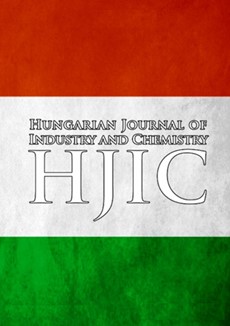ALKYLATION OF BIPHENYL WITH 1-HEXEN BY USING A CATALYST
DOI:
https://doi.org/10.1515/hjic-2002-37Keywords:
alkylation, biphenyl, 1-hexen, selectivityAbstract
Alkylation of biphenyl with 1-hexen by using a catalyst was investigated experimentally in this study. ((Al + C3H7Cl) + C2H4) was used as catalyst and mono-, di- and poly-alkyl-biphenyls were formed at the end of alkylation. The influences of temperature, mol ratio of biphenyl to 1-hexen, reaction time and catalyst concentration on alkylation process were investigated. Also the influences of these parameters on the formation of the obtained alkylbiphenyls were observed. Experiments show that alkylbiphenyl concentration in alkylat increases with temperature. It was observed that the selectivity of monohexylbiphenyl increases by increasing of reaction time and catalyst concentrations. Experiments showed that the selectivity of monohexylbiphenyls reached to its maximum value at a ratio of biphenyl to 1-hexen of 1:1. On the basis of these results, optimum conditions were determined for mono-, di- and polyhexylbiphenyls.Downloads
Published
2002-10-12
Issue
Section
Articles
How to Cite
ALKYLATION OF BIPHENYL WITH 1-HEXEN BY USING A CATALYST. (2002). Hungarian Journal of Industry and Chemistry, 30(3), 207-210. https://doi.org/10.1515/hjic-2002-37




